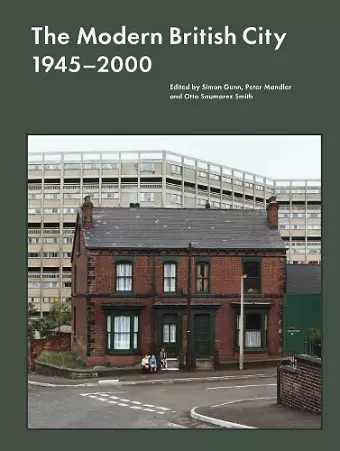The Modern British City 1945-2000
Peter Mandler editor Simon Gunn editor Otto Saumarez Smith editor
Format:Hardback
Publisher:Lund Humphries Publishers Ltd
Published:28th Nov '25
Should be back in stock very soon

Bringing together architectural, urban and social historians, this book charts the extraordinary changes that took place in British cities between the end of the Second World War and the early 21st century. This ambitious volume captures something of the diversity of the modern British city through a multi-disciplinary approach, exploring gentrification and multiculturalism, shopping and night life, as well as demography and statistics.
For much of the first two-thirds of the 20th century, ‘modern’ in the British urban context meant the purging of the Victorian past. Even so, much of the terraced housing and the monumental architecture of city centres still dated from the 19th century. Disdained by architectural critics in the first half of the 20th century, structures like Covent Garden’s Market Building, Manchester’s Royal Exchange and Liverpool’s Albert Dock would become pivots of the conservation and restoration movement which accompanied Britain’s ‘urban renaissance’ from the 1970s onwards.
As this book shows, after 1950 a series of long-term historical processes combined to transform the British city. Mass automobility brought with it motorways, underpasses and flyovers. Deindustrialisation left a profound mark on large areas of urban Britain, with enduring consequences for the communities affected. Immigration not only brought more diverse people and voices to British cities than ever before, but with them, a fresh variety of stores, restaurants, places of worship and venues for entertainment. Likewise, urban planning and the fruits of consumerism left their mark in the ubiquitous presence of civic centres, shopping malls and cultural quarters. The book shows how these processes did not operate separately, but in complex inter-relationship with one another, often producing unintended outcomes.
The result was cities where the past and the present were juxtaposed, adding to rather than diminishing their sense of place. This book will enrich our understanding of why British cities are as they are today, in all their messiness and mutability.
‘Anyone who has an interest in the urban history of modern Britain will find much to intrigue and stimulate them in this hefty book. Its richness is truly staggering.’ – Jerry White, Literary Review
ISBN: 9781848227293
Dimensions: 250mm x 190mm x 33mm
Weight: unknown
496 pages